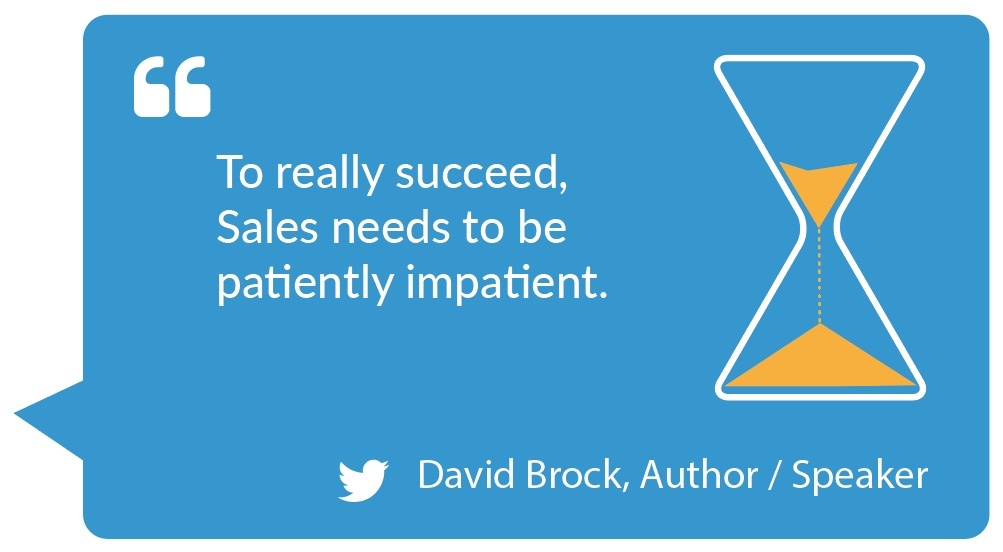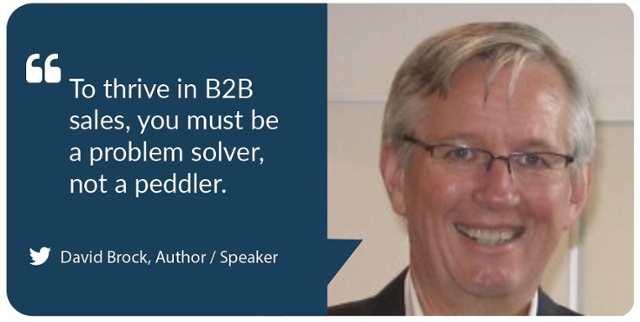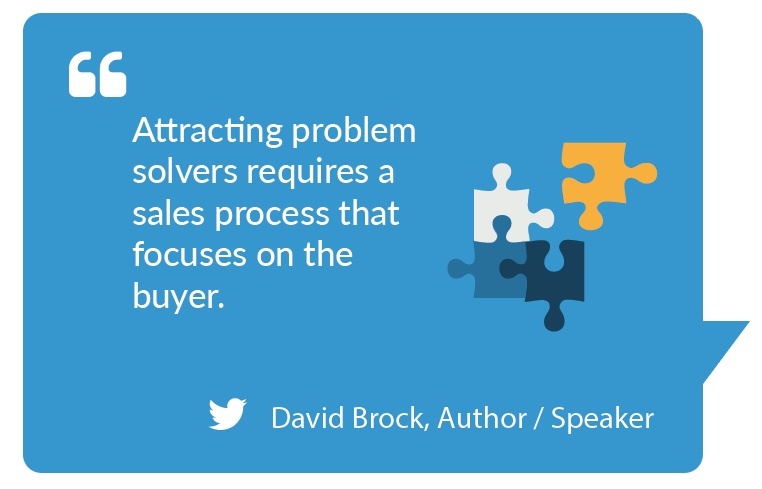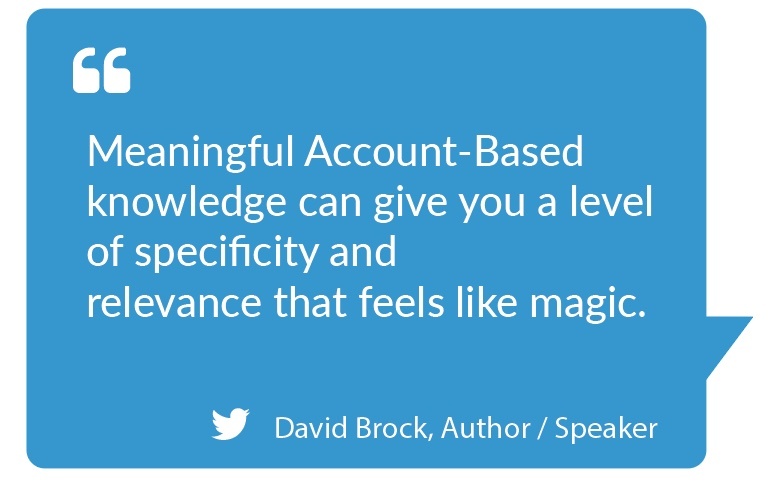It takes a thick-skinned sales rep to make hundreds of calls knowing most will go unanswered and those that do connect, lead to rejection. These poor cold callers are dialing, over and over, until they hit the jackpot: someone who will listen to their stock sales pitch.
Instead of looking for armies of reps to grind through calls, what if we filled these sales roles with people possessing the ability and skills to research companies, find ideal prospects and develop approaches that lead to meaningful conversations with potential customers? HINT: You’ll be hiring the team you need to execute Account-Based Selling.
In an Account-Based approach, reps will work with a well-focused Ideal Customer Profile (ICP) to create a target list that is in the sweet spot of their product-market fit. They make hyper-targeted calls, rather than casting such a wide net. Each call is higher stakes and demands research, an understanding of the specific problems of the person they are calling and a solid grasp of how the product they sell is the very best solution for solving that problem.
We interviewed renowned sales coach David Brock, founder of Partners in EXCELLENCE, for tips to improving sales calls in Account-Based Selling.
TIP 1: Be a problem solver not a peddler
Whether you have an army of dialers or not, the sales industry would benefit from eliminating these three common—but terribly far from buyer centric—calling tactics:
First to the chopping block: talking over the prospect
You make the mistake of saying hello and this sales rep doesn’t let you get a word in, not even to say there’s a better time, they just keep talking. Buyers don’t like this. This is the first tactic that should be eliminated.
Next to be axed: disguising the call with small talk
“Hi, you don’t know me, but how are you doing?” This tactic annoys pretty much everyone.
Red alert for elimination: not listening to the prospect
You’ve received months of the same voicemail and identical emails from this person. They aren’t listening to any of your signals, just filling their volume based quotas.
TIP 2: Hire for problem solving and critical thinking skills
To achieve problem solving in sales, you must know your buyers. You need to understand your buyers’ industry, their business needs, their competitive landscape and what’s important to them at the moment you’re calling them. This isn’t optional. This research and expertise is what distinguishes problem solvers from peddlers.
When looking for people best poised to connect meaningfully with buyers, David seeks five key characteristics aside from selling knowledge and skills.
They have to be a natural problem solver
The core of sales is problem solving, so finding sales development reps who are successful problem solvers makes immediate sense. These people don’t usually want to repeat unsuccessful behavior. Attracting problem solvers requires a sales process that focuses on the buyer and how to solve their problems rather than a focus on low hit percentage, high volume calls.
 They must be a critical thinker
They must be a critical thinker
One of the most important attributes your rep can have is the ability to seek information they can use to analyze the company and the prospect before, during and after calls. Researching your prospect and their business situation before calling them, and then listening more than talking sets these people up to hear what’s going on, and understand the right areas to get involved in.
They need to be patiently impatient
Patience is important, and these folks need to be patient enough to follow sales processes and respect the needs (including timing needs) of all the buyers making decisions in their deals. But they also need to be impatient enough to have the drive to keep tactically moving deals forward.
They need to be improvement athletes
 It’s important to find people that are obsessive learners with relentless execution. David shares that these sales reps always have their gears turning. They often feel like their teeth are getting kicked in, and are looking for better ways of selling to prevent that pain. Being obsessed with improvement and absolutely relentless about executing makes these people coachable and most likely to follow your sales process.
It’s important to find people that are obsessive learners with relentless execution. David shares that these sales reps always have their gears turning. They often feel like their teeth are getting kicked in, and are looking for better ways of selling to prevent that pain. Being obsessed with improvement and absolutely relentless about executing makes these people coachable and most likely to follow your sales process.
 They need to be insatiably curious
They need to be insatiably curious
These types of sales reps ask themselves a constant stream of questions that drive self-improvement like:
- Why did I fail?
- Why did I succeed?
- What would really excite my prospect?
- What makes my product the best at …? (They’ll want to experience/see it, not just read the value props)
They aren’t afraid to be introspective and take ownership of their improvement areas. They are also interested in asking useful and tough questions of prospects. These reps even question their managers in productive ways, and are well poised to be coached by a good manager.
TIP 3: Train them in practicing 20-minutes of preparation
If your reps have a targeted prospect list and they know what to look for, preparing well for calls doesn’t need to take long.
Industry knowledge
Make sure to give them tips on building increased familiarity with the industry. Show them the best sources for a quick review of the news alerts and industry updates relevant to their company to look for clues about what stressors or goals your prospect might be facing.
Multiple viewpoints
Tactically, giving your reps two screens or large monitors that support multiple windows for executing their research helps them understand more information quickly. LinkedIn or profiles of the buyers on one screen and the prospect’s website and industry news on the other.
Planned observations
Work through approaches with prospects that require talking about your product as little as possible. The goal is to figure out what the buyer is trying to achieve. You should lead with some sort of insight or observation to establish credibility.
Clear understanding of value
Train your reps to look for the key that unlocks the next step with the prospect. Rather than looking for all the ways each prospect might align to the many products and services and value propositions you offer, think about the buyer’s situation and the problems that presents and then compare that to what your company is best at solving. Help them identify if a buyer is in your sweet spot, and whether your company will be good at solving their problem. If you can help your reps solve for this, the probability of winning the prospect’s attention gets much higher.
For insightful perspective and detailed tactical plans on improving your sales organization, check out David Brock’s book, Sales Manager Survival Guide.





